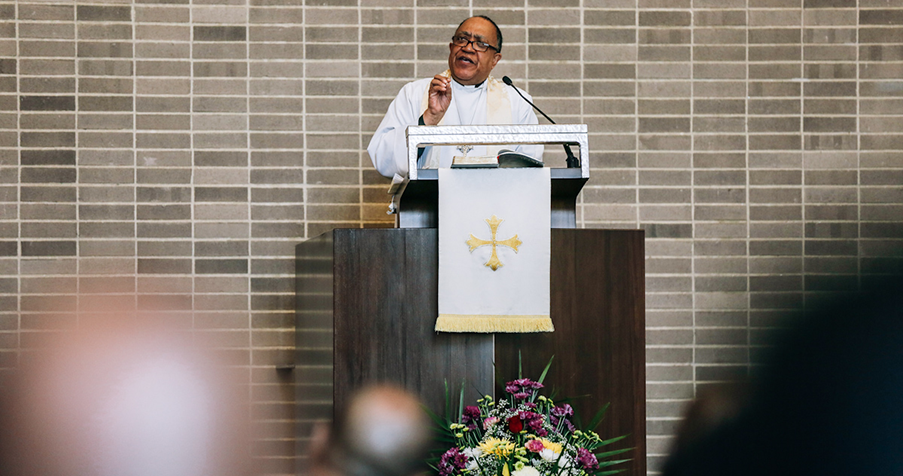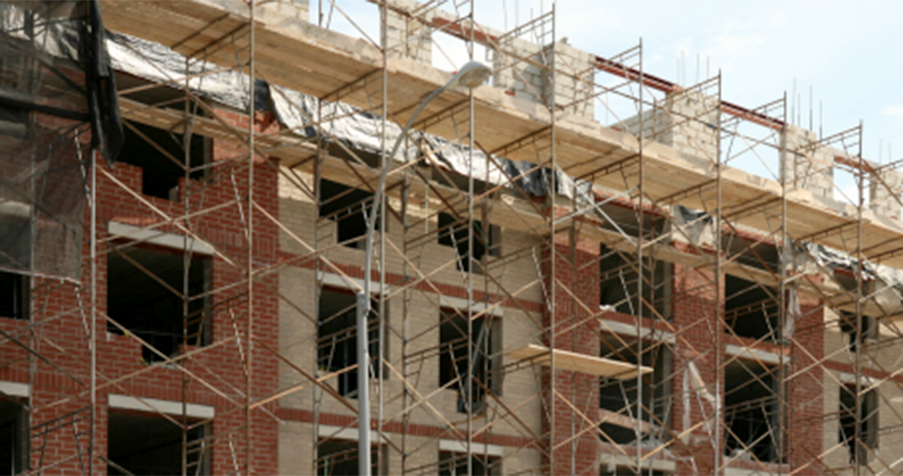Re-Energizing the Bronx
Sep 5 2017
BlocPower Offers Energy Retrofits to Communities That Need Them Most
For years, Pastor Leo Curry of Fordham United Methodist Church in the Bronx worried about the cost of heating his church and social hall with two outdated boilers. It was so bad that the monthly bills sometimes soared above $12,000.
“It was almost to the point of bankrupting us,” says Curry. He needed to lower his energy bills— plus he wanted to reduce the church’s impact on climate change. Then, in 2014, he met the owners of BlocPower, an organization that develops and finances energy efficiency projects in low- to moderate-income communities. It was like an answered prayer.
The New York–based startup reviewed the church’s finances and conducted an energy audit. It advised a switch from oil to natural gas heaters and recommended zone heating so the church can heat rooms only when they are in use. So far, contractors have retrofitted the social hall, and the church is in progress. When the project is complete, Curry expects to see a 30 percent cut in utility costs.

Pastor Leo Curry of Fordham United Methodist Church.
Fordham United Methodist Church is just one of many clients that BlocPower has helped. Last year alone, the company conducted 384 energy audits, completed 48 projects, and reduced carbon dioxide emissions by 403 tons— roughly equal to taking 88 cars off the road.
“BlocPower is meeting a need that’s been overlooked,” says Stu Fram, senior associate of RSF’s Social Enterprise Lending. “They’re bringing energy efficiency and renewable energy to urban communities that don’t otherwise have access.”
From oven heating to overseeing projects
BlocPower is the brainchild of Donnel Baird, who spent his early childhood in Brooklyn’s Bedford-Stuyvesant neighborhood, in an apartment his Guyanese parents heated with their oven. While working as a community organizer for the New York City mayor’s office and Barack Obama’s campaigns, Baird saw that many of the country’s least energy-efficient buildings were clustered in low-income neighborhoods.
Baird wanted to change that. When he was a graduate student at Columbia University’s business school, he met Morris Cox, also an immigrant’s son, and the two became passionate about starting a company.
During a business school trip to South Africa, Baird learned that the U.S. Department of Energy was offering a $2 million contract to a business that could develop a technology platform connecting investors with small retrofit projects. He applied and won the contract. In 2013 Baird and Cox founded BlocPower, just months after they graduated.
Bundling projects in Asthma Alley
Baird was passionate about addressing the issue of how pollution and climate change disproportionately affect people of color. The South Bronx, for example, is known as “Asthma Alley” because it has one of the highest asthma rates in the country. One cause is indoor air pollution created by buildings with poor air flow and dirty, out-of-date heating and electrical systems. Yet faith centers, small businesses, and apartment buildings rarely qualify for energy retrofit loans because the projects are too small.
BlocPower’s solution is to bundle projects in a bloc and find investors willing to provide capital for the larger sum. Though other organizations are doing similar work, BlocPower is unique in its focus on financially underserved urban communities. Its innovative technology monitors energy usage. And it is a benefit corporation, which means its social purpose is embedded in its corporate charter.

Bronx Housing Construction.
BlocPower has grown three- to fourfold every year since launching. It is now working on more than 150 retrofits and has established the Bronx Healthy Building Fund with a coalition of public and private partners. The coalition is raising $10 million for investments in clean energy retrofits in multifamily buildings with the goals of improving the health of building residents, lowering energy bills, and providing jobs in the community.
Bridging capital & values
Despite BlocPower’s rapid growth trajectory, finding investors for its projects isn’t easy. “It’s tough finding people who understand we’re interested in making a broad societal impact rather than making as much money as we can,” says Cox, BlocPower’s chief investment officer. It is now working with five to ten investors.
Last year, Baird and Cox worried they might have to cut their staff in half if they couldn’t bridge a persistent cash flow problem. The issue: Much of BlocPower’s income derives from government contracts, and it can take three to six months for the money to arrive. But the business can’t wait to pay its employees or project contractors. “We had accounts receivable that were so large they were threatening to wipe us out,” says Cox.
BlocPower approached several lenders for help, but they were wary of using government contracts as collateral. Then the company came to RSF. Both Baird and Cox were enthused by RSF’s willingness to look at the whole picture.
“RSF was willing to dive deeper and find the real story behind the numbers,” says Cox. “Once they dove in, they saw what any other lender would see if they took the time. We have a good business. We have good contracts.”
Last August, RSF issued the company a $750,000 line of credit, which benefited both parties. “BlocPower was able to get capital from a source of debt that’s values aligned,” says RSF’s Fram. “And we’re able to make an impact in energy efficiency and renewable energy, which are exploding right now.”
Saving money, reducing carbon emissions
The loan meant BlocPower could stay in business, says Cox. It has also been able to expand into other American cities, including Chicago and Philadelphia, and will soon enter sub-Saharan Africa. BlocPower plans to double in size over the next several years and is currently trying to raise $15 million in private-sector funds.
For BlocPower clients such as Pastor Curry, what matters most is how this ambitious startup has helped him address climate change while saving on his energy bills. “Once we finish our conversion to gas and don’t have to spend so much money on utilities,” he says, “we’ll have greater resources to spend on after-school and youth programs. We can be a more viable presence in our community.”
This article was originally published in the summer 2017 RSF Quarterly.
Melinda is marketing director at RSF.